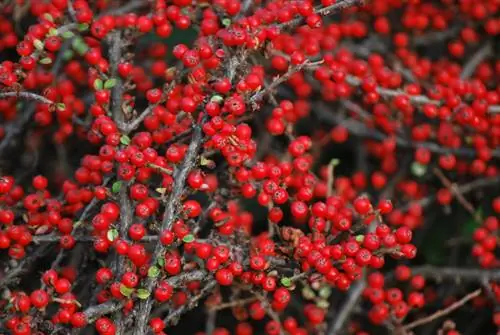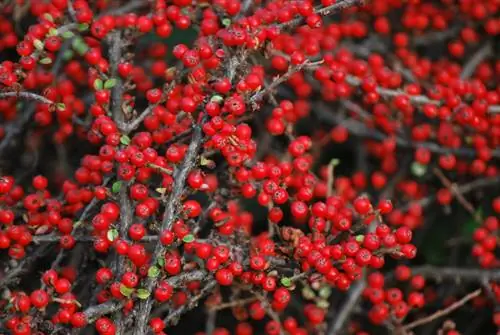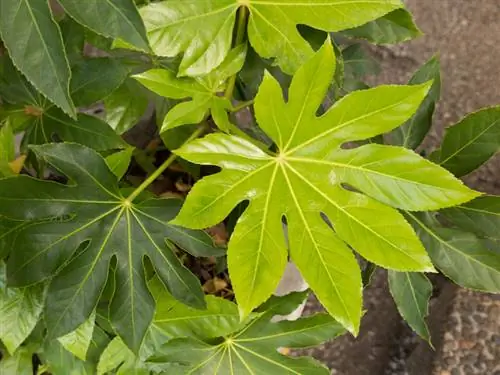- Author admin [email protected].
- Public 2023-12-16 16:46.
- Last modified 2025-06-01 06:02.

The cotoneaster is a popular ground cover that is often planted in rock gardens, on slopes, embankments and streets. Their bright red fruits attract berry lovers. But be careful: this plant literally has it all!
Is the cotoneaster poisonous?
The cotoneaster is slightly poisonous in all parts, especially in the fruits, as it contains compounds containing hydrogen cyanide such as prunasin and amygdalin. Poisoning can cause nausea, vomiting and swelling in the mouth area.
Poisonous - yes or no?
The cotoneaster is poisonous - regardless of whether it is used as a bonsai or ground cover. It is considered slightly poisonous. The reason for this is, among other things, their hydrogen cyanide content, which is highest in their fruits. Depending on your body weight, symptoms of poisoning occur when you consume between 10 and 20 fruits.
The hydrogen cyanide leads to mild poisoning. It impairs cellular respiration and results in internal suffocation. Symptoms may include the following:
- Nausea
- Vomiting
- lip swelling
- Stomach Jokes
- Burning in the mouth
Which parts of plants contain toxic substances?
The poisonous substances in cotoneaster include prunasin and amygdalin (a glycoside containing hydrogen cyanide). All parts of the plant, leaves and bark as well as flowers and fruits, contain one or both of these active ingredients and can have a toxic effect on the body.
The fruits have the highest poison content. The seeds it contains, which can be used for propagation, are also poisonous. Be careful when handling this plant!
Tips & Tricks
As a precaution, the cotoneaster should not find a place in the garden if small children live in the household and like to play in the garden. The red and berry-like fruits in particular quickly tempt you to snack on them. In an emergency: To bind the poisons, add 1 g of medical charcoal/activated carbon (€14.00 on Amazon) per kg of body weight.






